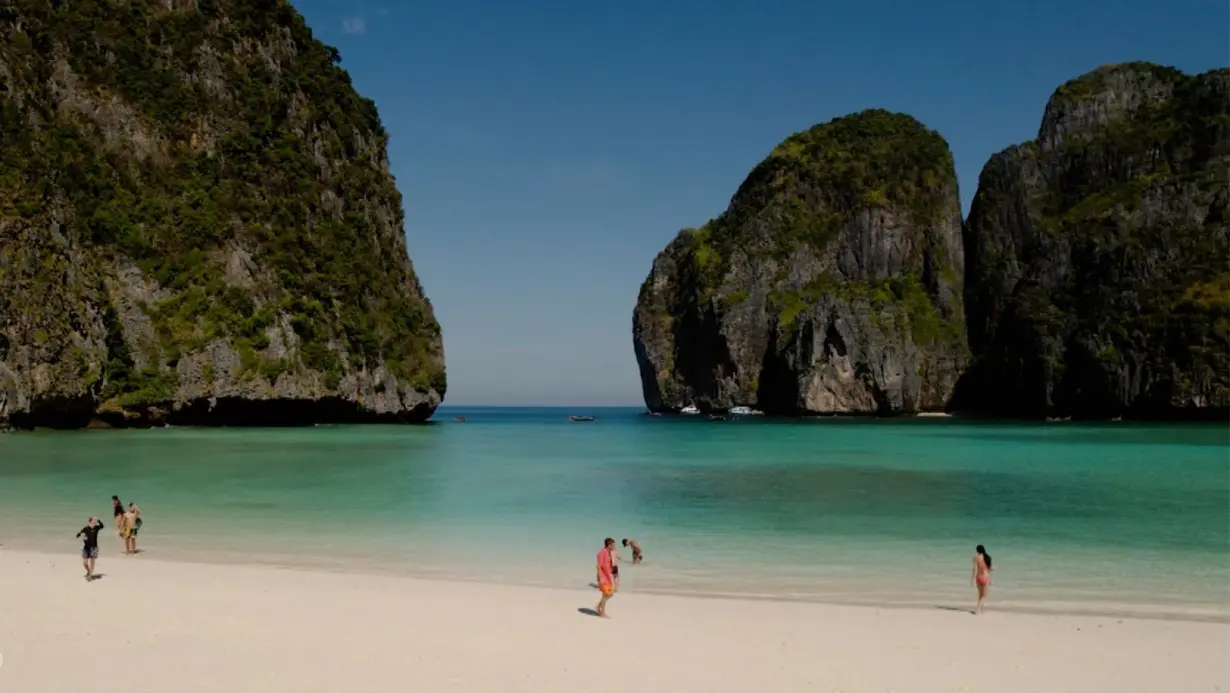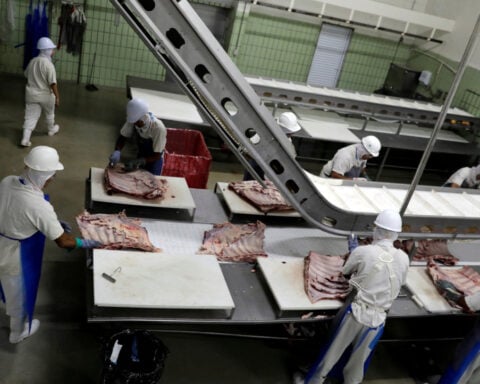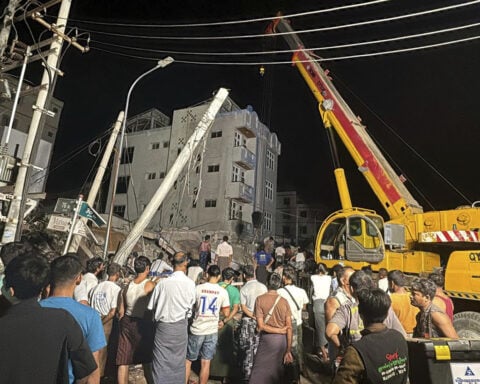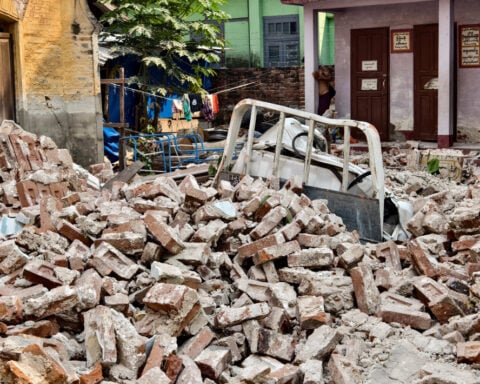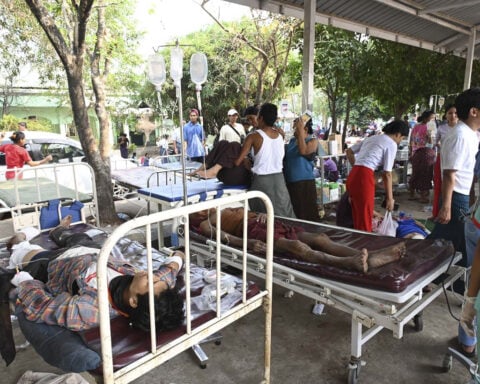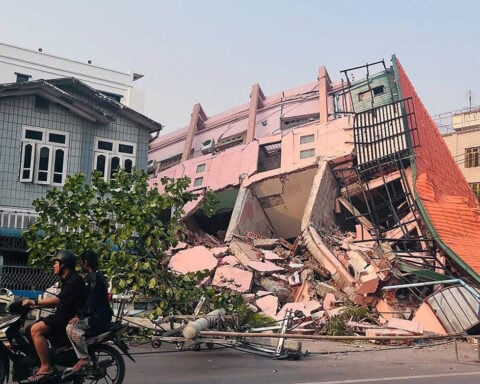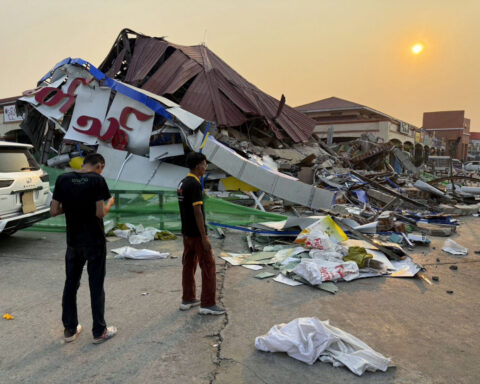Bangkok (CNN) — Maybe you want to escape the winter months at home, opting instead to take care of your business on a laptop from the comfort of your rented Phuket villa as you gaze over the Andaman Sea. Or perhaps you’re ready to step into the ring and embark on a new career as a Muay Thai fighter.
Either way, Thailand has you covered.
The popular Southeast Asia destination recently introduced a new five-year visa targeted at remote workers and other travelers looking to stay in the kingdom for extended periods.
According to a statement issued by the Thai prime minister’s office, the Destination Thailand Visa (DTV) will allow eligible travelers a period of stay up to 180 days per visit, on a multiple-entry basis, within five years. (This means they will need to leave the country when their 180 days are up, and the time resets when they re-enter.)
The government statement says the visa is open to several categories of remote workers, including digital nomads and freelancers. It’s also aimed at those looking to visit to engage in activities such as Muay Thai training or Thai cooking classes, or come for extended medical treatments.
To apply, travelers need to show evidence that they have a minimum of 500,000 baht (about $13,800) in funds, as well as documents to support the purpose of their visit, such as a letter from a medical center or proof of employment status outside of Thailand.
The visa, which costs 10,000 baht, does not permit applicants to seek employment in Thailand.
‘They need to slow the pace’
The Thai government has also expanded the list of countries and territories allowed visa-free access for tourism and short-term business from 57 to 93, while also extending the length of stay from 30 days to 60.
Meanwhile, the number of countries/territories whose nationals are entitled to a Visa on Arrival has also been bumped up from 19 to 31.
According to government figures, Thailand welcomed 17.5 million foreign tourists in the first half of this year, a 35% increase over the same period last year.
But experts say the new visa measures aren’t simply aimed at attracting more visitors.
“If you look at what Thailand has done, the initiatives and campaigns it’s put in place over the last two years to drive up visitor arrivals, it’s been pretty successful,” says Gary Bowerman, founder of Check-in Asia, a tourism-focused research and marketing company.
“So it leads Southeast Asia by a long way in terms of visitor arrivals. But the problem – and this is a big problem – is that although it’s got the numbers coming in, the average spend per visitor is relatively low.”
Bowerman adds that the pressure on resources is getting tougher, too.
“The incremental value of just having more and more people isn’t being felt, so they need to find ways to actually increase the length of stay, increase the per-person spend,” he says, noting that the bulk of Thailand’s international arrivals are regional travelers who visit for short periods.
“You’ve got a lot of people coming in, moving around, getting out quite quickly. That puts intensifying strain on the infrastructure, on the airports, on the transport networks … They need to slow the pace.”
That, he says, is why they’re trying to attract long-stay visitors like digital nomads, too — “simply because it puts less pressure on the entry points and the transport points.”
Travelers combining work and leisure
According to the PM office’s statement, the new measures are aimed at promoting tourism and boosting the economy and have been in effect since July 15.
Thailand certainly isn’t alone in its desire to bring travelers in for longer periods. Olivier Ponti, director of intelligence and marketing at ForwardKeys, a travel data company, says more people than ever are seeking out opportunities for extended holidays – and countries are paying attention.
“A global trend we have observed throughout the post-Covid-19 period has been that travelers are staying at destinations for longer,” he says. “Arrivals to the Asia Pacific region remain -23% vs 2019, yet longer stays (two weeks or more) are just -8% below pre-pandemic levels.”
Many destinations have already launched new visas to accommodate this increase in remote working, he says, with flexible workplace policies now allowing people to combine work and leisure more easily.
“Particularly, visas which allow for multiple entry, have longer validity periods, and those which allow for family members to accompany the visa holder on the trip are having success in attracting long-stay tourists,” says Ponti.
Other factors come into play in terms of desirability too, he says, such as a destination’s quality of life, cost of living, national and local sustainability practices, and tax benefits, to name a few.
As for Thailand, Ponti says the new long-stay visa is most likely to be embraced by long-haul travelers “who tend to stay much longer on average compared to regional travelers within the Asia Pacific.”
“Currently, the proportion of tickets with long stays (over 14 nights) remains around 25%, medium stays (6-13 nights) represent 45%,” says Ponti, referring to numbers based on flight booking data.
“These measures will likely enhance the appeal of Thailand for long-term visitors, potentially increasing these proportions over time.”
The-CNN-Wire
™ & © 2024 Cable News Network, Inc., a Warner Bros. Discovery Company. All rights reserved.

 Trump has begun another trade war. Here's a timeline of how we got here
Trump has begun another trade war. Here's a timeline of how we got here
 Canada's leader laments lost friendship with US in town that sheltered stranded Americans after 9/11
Canada's leader laments lost friendship with US in town that sheltered stranded Americans after 9/11
 Chinese EV giant BYD's fourth-quarter profit leaps 73%
Chinese EV giant BYD's fourth-quarter profit leaps 73%
 You're an American in another land? Prepare to talk about the why and how of Trump 2.0
You're an American in another land? Prepare to talk about the why and how of Trump 2.0
 Chalk talk: Star power, top teams and No. 5 seeds headline the women's March Madness Sweet 16
Chalk talk: Star power, top teams and No. 5 seeds headline the women's March Madness Sweet 16
 Purdue returns to Sweet 16 with 76-62 win over McNeese in March Madness
Purdue returns to Sweet 16 with 76-62 win over McNeese in March Madness
